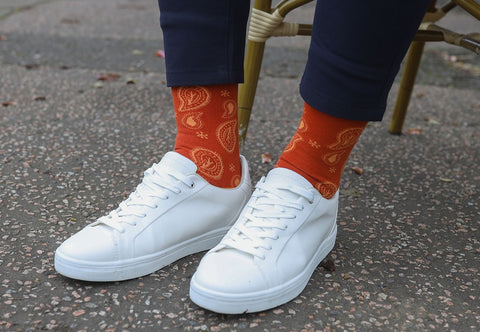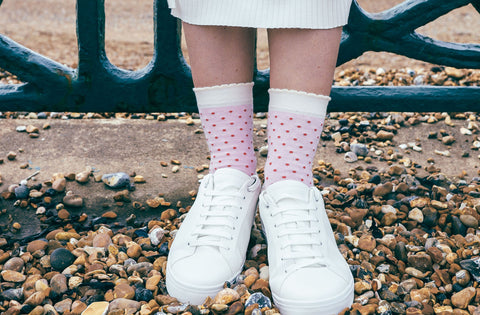The Rise Of Sustainable Fashion
In recent years, the fashion industry has undergone a significant transformation, with sustainability taking centre stage. As we celebrate Earth Month, it's the perfect time to reflect on the remarkable journey of sustainable fashion in the UK over the past two decades and how we can look to the future.
Setting the Foundation
The seeds of sustainable fashion were planted in the late 20th century, as environmental and ethical concerns began to emerge within the industry. Early pioneers advocated for fair labour practices, organic materials, and eco-friendly production methods, laying the groundwork for a more conscious approach to fashion.

A Growing Movement
As we entered the new millennium, awareness of sustainability issues continued to grow, fuelled by documentaries, exposés, and grassroots activism. Consumers started to question the ethics and environmental impact of fast fashion, demanding greater transparency and accountability from brands.
Mainstream Adoption
By the mid-2000s, sustainable fashion had transitioned from niche to mainstream, as more brands embraced eco-friendly practices and ethical principles. Innovations in materials, such as organic cotton, bamboo, and recycled fibres, offered viable alternatives to conventional fabrics, while eco-conscious designers showcased the beauty and versatility of sustainable fashion on the runway.
The Rise of Ethical Consumerism
The rise of social media and digital activism played a pivotal role in driving awareness and advocacy for sustainable fashion. Consumers became more informed and empowered, using their purchasing power to support brands that aligned with their values and beliefs. Ethical consumerism emerged as a powerful force for change, prompting brands to prioritise sustainability as a core business strategy.

Innovation and Collaboration
Today, sustainable fashion stands at the forefront of industry innovation and collaboration. From circular fashion initiatives to zero-waste production methods, brands are embracing creativity and ingenuity to address pressing environmental and social challenges. Partnerships between fashion houses, NGOs, and government agencies are driving systemic change and paving the way for a more sustainable future.
The Road to a Greener Future
As we look ahead, the journey towards sustainable fashion is far from over. With climate change, resource depletion, and social inequality continuing to threaten our planet and its people, the need for collective action and commitment has never been greater. By continuing to support ethical and eco-friendly brands, advocating for policy reform, and making conscious choices as consumers, we can all play a part in shaping a more sustainable and equitable fashion industry for generations to come.

The rise of sustainable fashion in the UK over the last 20 years is a testament to the power of collective action, innovation, and perseverance. As we celebrate Earth Month, let us reaffirm our commitment to sustainability and embrace fashion that not only looks good but does good for our planet and its inhabitants.
